Discover Your Story in the Act of Writing
It’s natural to want to know where your story is headed or at the very least, know that you are not wasting your time — especially on something as grand as the first draft of a novel — but it’s not always easy to relinquish control and let the act of writing itself discover your story. Yet often it is in doing just that which gives you the literary liberty you need to write freely, discover your story and connect with your work.
“One of the things I had to learn as a writer was to trust the act of writing.” E. L. Doctorow told The Paris Review. “To put myself in the position of writing to find out what I was writing. The inventions of the book come as discoveries. At a certain point, of course, you figure out what your premises are and what you’re doing. But certainly, with the beginnings of the work, you really don’t know what’s going to happen.”

In her book Bird by Bird, novelist and essayist Anne Lamott echoes this. “Writing a first draft is very much like watching a Polaroid develop. You can’t–and in fact, you’re not supposed to–know exactly what the picture is going to look like until it has finished developing.”
“There may be something in the very last line of the very last paragraph on page six that you just love, that is so beautiful or wild that you now know what you’re supposed to be writing about, more or less, or in what direction you might go – but there was no way to get to this without first getting through the first five and a half pages.”
When asked if he had any idea how a book is going to end, Doctorow articulated exactly what it is to trust the act of writing and keep going, in spite of a need to know your exact story and plot. “I have found one explanation that seems to satisfy people. I tell them it’s like driving a car at night: you never see further than your headlights, but you can make the whole trip that way.”
How to Create Character Depth
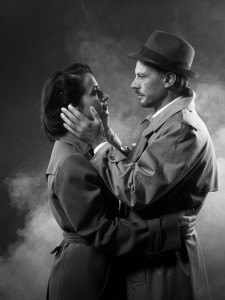
Without depth characters fall flat on the page as either unrealistic or simply uninteresting and dull, and can lose the reader in an instant. The best characters, much like the most interesting people, are multi-faceted, with layers, needs, quirks, hidden wants and depths. People are complex and so should your characters be.
“Complexity is an indispensable ingredient of life, and so it ought to be with the characters we create in our stories,” says author Stavros Halvatzis. Knowing your characters far more deeply than you even let on will reveal far more than what is written on the page.
“Think of your character as a jewel that has about a thousand different facets,” says author and writing coach, Lauren Sapala. “If you keep turning them over and exploring new sides, you’ll keep discovering new information about their personality and motivations. And there’s always another way to turn things. There’s always another side to explore.”
To write your characters authentically the finest inspiration comes from observing the people in your life. From those closest to you to complete strangers, listening to their dialogue, watching their mannerisms and also how they react to situations, all of this can be rich with insight and creative power for the people in your fiction. As Susan Sontag said, “A writer is someone who pays attention to the world.”
“Building realistic characters is a crucial part of writing a successful story. Know your character’s defining traits and tap into the good and the bad that comes with them, and you’ll be on your way to creating multi-dimensional characters that will resonate with readers,” says writer and co-author of the Emotion Thesaurus series, Becca Puglisi.
It’s essential to maintain an awareness of their greatest flaws, traits and attributes. Becca suggests making a list of the traits your character embodies, good and bad, with some positive and negative elements for each trait, and then narrowing it down to one primary flaw and one primary attribute.
“This will keep things clear for you, which will then ensure clarity for the reader. Once you’ve identified a primary flaw and attribute, brainstorm the behaviours and attitudes—positive and negative—that might manifest in a person who exhibits those traits. Show both sides of your character’s nature, and you’ll create a hero or villain that smacks of authenticity,” says Becca.
Become the Character [Do Not Judge the Character]

“I become the characters I write about. When I write about a thief, I become one… I become the characters I write about and I bless the poet Terence who said, “Nothing human is alien to me,” said playwright, author and poet, Carson McCullers.
Author and writing teacher, K. M. Weiland agrees: “When we write from a character’s POV, we must become that character. Get under each character’s skin. Figure out why he does what he does. If you’re not willing to accept his reasons and admit you understand them, you probably don’t know this character well enough to be writing about him. No character is black and white—not the hero, and certainly not the villain.”
Weiland adds that it’s important to care for and love your characters. “Love your characters enough to understand them, enough to forgive them, enough to accept them. If we fail to love him, we will fail to understand him and, as a result, end up looking down our noses and sermonising.” This judgment of the actions and traits of the stars of your story can work against you and the depth of the characters themselves.
Instead, much like in life, detach, be present but be the observer too. “The artist should not be the judge of his characters and their conversations, but only an unbiased observer,” said short story writer Anton Chekhov. “Let the jury judge them [the characters]; it’s my job simply to show what sort of people they are.”
Finding Your Scene Using Dialogue

If unable to begin a scene or a chapter that is being troublesome, remove all but the dialogue. Simply write it as the conversation between characters — no description, no narrative outside of that of the speech — and much like when free-writing allow your words, the conversation to carry you, to move you forward through the scene and shape that scene.
It can be a wonderful way to release any storytelling tension and liberate your characters ta boot. The story you are writing wants to be written and by you. The characters want to have their story told. You have been graced with the humbling honour of telling it. Open yourself to it, follow your characters and write the story down. When you let go of a need to think up your story, you will find, as if by grace or by magic, a combination or neither at all, your story will write itself.
“Much more exciting to me is the intricacy, the plot form, of dialogue,” said writer, critic and short story author, Sir Victor Sawdon Pritchett. “The speaker is making up his drama as he goes along, and he doesn’t know how good he is or how bad he is. It’s natural, so therefore dialogue gets me out of any chip I have about not being able to think of a good plot. Dialogue is one of the things which I seem to be able to do, hit upon doing, and like. Dialogue is my form of poetry.”
Finding Your Story’s True Voice

“Nothing is as important as a likeable narrator. Nothing holds a story together better,” says writer Ethan Canin. The voice and narrator of your book may only evolve when you take a little of the pressure off, relinquish the need to write only well.
E. L. Doctorow found that it was only after he realised that the book he was writing was less than wonderful writing, it created a certain desperation, and—in mockery of that—he splurged his rantings of frustration onto the page. This writing without care or consequence, perhaps ironically, gave him the juice that he needed to discover his story and find the voice and narrator of his book.
“I sat down rather recklessly and started to type something almost in mockery of my pretensions as a writer—and it turned out to be the first page of the book. What I had figured out in that tormented way was that Daniel should write the book, not me. Once I had his voice I was able to go on. It’s a matter of being in language, of living in the sentences.”
When you are writing let go of any need to force your characters to fit the idea of your story, or indeed story fit your characters. Instead set a timer (I love the Pomodoro timer), and use the potent technique of free-writing to discover more about your story, a scene or chapter, you can use free-writing for characters and settings scenes too.
The important thing is to keep moving and keep writing, without judging your work as you do so, and therein the magic of your prose appears. It may not all be magic, in fact much of it could be nonsense but it’s in liberating yourself from judgement of your writing, and getting the words down as opposed to thinking the writing up, you and free to discover gems.
Stop Before the Juice Runs Out

“You write until you come to a place where you still have your juice and know what will happen next and you stop and try to live through until the next day when you hit it again. You have started at six in the morning, say, and may go on until noon or be through before that,” Ernest Hemmingway told The Paris Review.
“When you stop you are as empty, and at the same time never empty but filling, as when you have made love to someone you love. Nothing can hurt you, nothing can happen, nothing means anything until the next day when you do it again. It is the wait until the next day that is hard to get through.”
Equally, working and reworking a scene can lead to it losing its magic. Endless tweaks and perfectionism can be the enemy of creativity. “I know when it’s the best I can do,” Maya Angelou said in this interview with The Paris Review.
“It may not be the best there is. Another writer may do it much better. But I know when it’s the best I can do. I know that one of the great arts that the writer develops is the art of saying, “No. No, I’m finished. Bye.” And leaving it alone. I will not write it into the ground. I will not write the life out of it. I won’t do that.”
Scene Change: Keep Writing
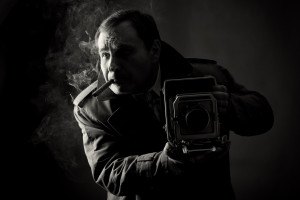
Sometimes because of a difficult scene, capricious character or a chapter that refuses to work, a certain resistance to your work in progress can occur but fiction doesn’t need to be written chronologically. In fact, working on what draws in your attention and passion too can be a wonderful way to come unstuck from a creative block in a story.
“If a scene or a section gets the better of you and you still think you want it—bypass it and go on. When you have finished the whole you can come back to it and then you may find that the reason it gave trouble is because it didn’t belong there,” said John Steinbeck.
Dive Deep into Your Character’s Backstory
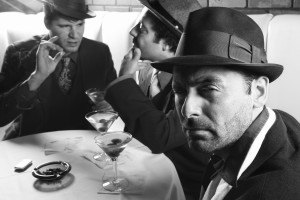
“Backstory is one of the most important things in a writer’s arsenal. Understanding a character’s past and what events shaped them is critical to understanding who they are,” says writer and co-author of the Emotion Thesaurus series, Angela Ackerman.
Angela suggests brainstorming on your character’s backstory, thinking about what experiences and people have influenced them. “This is not so that you can dump a bunch of raw flashbacks and information lumps into your story to explain your character’s pain. Rather it is for you as the author, to understand what motivates your character, what he fears, and what needs and desires are important to him.”
Understanding the motivations and experiences underneath your characters thoughts, actions and traits can translate subtly onto the page but will be present even in that subtlety. “A strong character wears his backstory heavily in his eyes, his gait, or on his sagging shoulders,” says novelist Josie Brown. “It is sprinkled into his conversation, and that of his friends and enemies.”
When it’s Time to Write: Write

If you find that you’re regularly stopping to read and tweak your work while writing, work that may well be cut later anyway, it’s not only a potential waste of your time but also makes it far more tricky to keep returning to the space where your writing flows if you keep pausing to edit what you have written.
“Write freely and as rapidly as possible and throw the whole thing on paper,” said John Steinbeck in this interview with The Paris Review. “Never correct or rewrite until the whole thing is down. Rewrite in process is usually found to be an excuse for not going on. It also interferes with flow and rhythm which can only come from a kind of unconscious association with the material.”
Writing and creating are such different processes to refining and editing that keeping them separate enhances each, improving both your writing and editing. Similarly, having a different space and environment for inspiration and creative ideas, with a different space in which you do the more analytical side of your creative work also aids each process.
Find Your Optimum Time

“When I am working on a book or a story I write every morning as soon after first light as possible,” said Hemmingway. “There is no one to disturb you and it is cool or cold and you come to your work and warm as you write. You read what you have written and, as you always stop when you know what is going to happen next, you go on from there.”
You know your own body and spirit best. If you are a night owl and find your nocturnal writings to be the most creative, factor in a single Pomodoro session before you sleep. If you, like Hemmingway and I (that was cheeky), love to rise before the world wakes, and write, give yourself the gift of just 25 minutes writing every morning. It’s amazing how swiftly your completed works will mount up and the discipline of writing every day will also swiftly become habit.
Optimising where you write also strongly influences both the process and prose. Unless you can create without direction and focus, it’s always going to be tricky to reach the results you desire. You may enjoy this post on finding and optimising your creative space.
Forget Formula and Write

“If there is a magic in story writing, and I am convinced there is, no one has ever been able to reduce it to a recipe that can be passed from one person to another. The formula seems to lie solely in the aching urge of the writer to convey something he feels important to the reader,” said Steinbeck.
“If the writer has that urge, he may sometimes, but by no means always, find the way to do it. You must perceive the excellence that makes a good story good or the errors that make a bad story. For a bad story is only an ineffective story.”
So much of fiction writing is intuitive. As Kurt Vonnegut once said, “We have to continually be jumping off cliffs and developing our wings on the way down.” Or Ray Bradbury’s curiously similar advice, “First you jump off the cliff and then build your wings on the way down.”
Author, speaker and writing coach, Stephanie Lennox agrees that it is in the act that you learn, hone your craft and create. “People spend their entire lives trying to find the right way to write, or trying to find the “perfect” formula – but in that time all their passion for writing withers away. No one can teach you how to write… you have to teach yourself by doing.”
And finally, one last little gem from Neil Gaiman
“The best thing about writing fiction is that moment where the story catches fire and comes to life on the page, and suddenly it all makes sense and you know what it’s about and why you’re doing it and what these people are saying and doing, and you get to feel like both the creator and the audience,” says author Neil Gaiman. “Everything is suddenly both obvious and surprising… and it’s magic and wonderful and strange.”
IF YOU LIKED THIS POST, FEEL FREE TO ADD YOUR COMMENTS AND SHARE THE LOVE ♥
P.S. Sign-up to my newsletter, should the mood take you, Namaste ♥
You May Enjoy:
99 Essential Quotes on Character Creation
Love Your Characters – Or Else! – Helping Writers Become Authors
Why We Need to Keep Writing When We Feel Defeated – Gift of Writing
How Paradoxes Deepen Character
Emotion Thesaurus Angela Ackerman Becca Puglisi | Kristen Lambs Blog
Craft of Writing: Make Your Hero Complex By Choosing The Right Flaws by Angela Ackerman
Assessing or Obsessing: Shifting How you Value your Creative Energy – Creative Katrina
Great Characters–The Beating Heart of Great Fiction
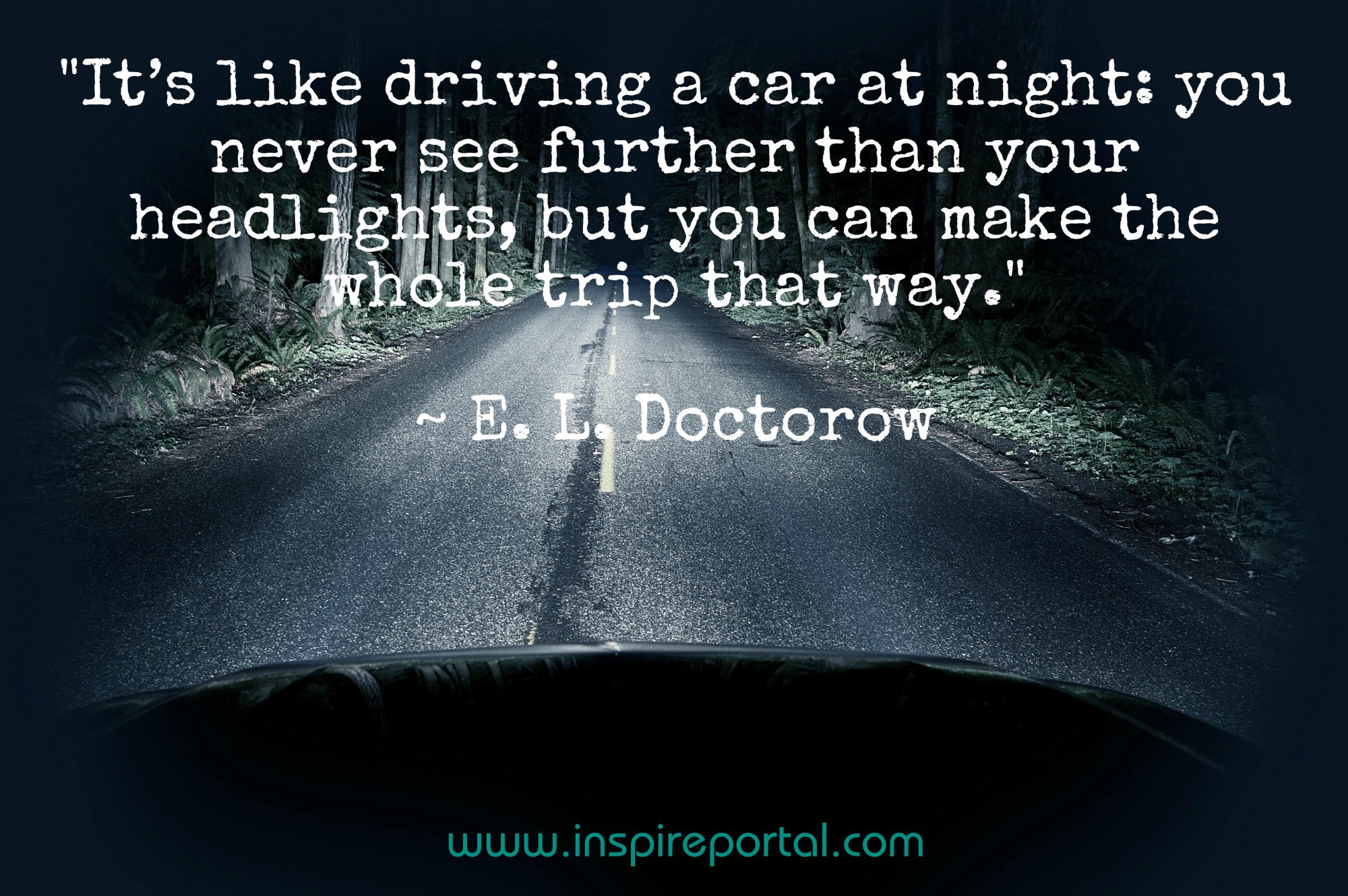

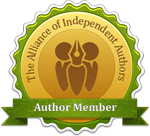


Terrific post, it’s wonderful to read the quotes with inspiring examples near them! Your redesigned site looks fabulous, too and it’s so navigable. I’ll be coming back for more, Jo.
Thank you Jann, so lovely to read your comment. Delighted you enjoyed this post, and the redesigned site too. I feel the same about your wonderful writings and site. Wishing you a joyful and creative week. ♥
To write a powerful motivational fiction story, you need to have the heart, experience, and generosity to share the things that you think can motivate other people.
Read my blog: Tips on Writing a Powerful Motivational Fiction Story
Hope this will help, Thank you!